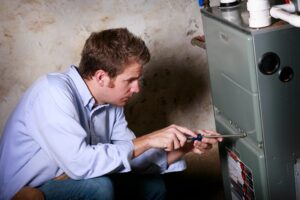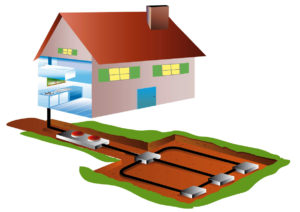5 Strategies for Improving Winter Indoor Air Quality
You’re likely spending much more time indoors during the winter than you would in any other season, so it’s especially important for you to care for the indoor air in your Charleston, South Carolina, home during this time of year. Use these five strategies to take control of your indoor air quality this winter and maintain a healthier, happier home.
Change Your Air Filter
The first line of defense between you and poor indoor air quality is the air filter in your home’s HVAC system. This filter catches particles and keeps them from spreading through your home. Like any filter, though, your HVAC air filter will clog over time and needs to be replaced. You should check and change your air filter about once a month in order to keep your air clean.
If you think your filter isn’t keeping your air as clean as you’d like, consider looking into a filter with a higher MERV (minimum efficiency reporting value), which will catch more particles.
Install an Air Cleaner
While your air filter certainly removes a fair amount of pollutants from your air, it doesn’t thoroughly purge irritants from your home. If you or members of your family have severe asthma or are especially susceptible to illness, you may want to consider installing an air cleaner. Think of a whole-home air cleaner as a super-filter that works in league with your HVAC system to remove irritants from your air. Not only are air cleaners especially effective air filters, but they also will usually neutralize bacteria and other microscopic organisms so they can’t bother you or your family.
Control Your Humidity
In order to maintain high indoor air quality, it’s crucial to control your humidity year-round. We’re all well-acquainted with the hot humidity of summer in South Carolina, but such humidity is not just uncomfortable; it can also be bad for your indoor air quality. Too much humidity could increase biological growth and allow dust mites to thrive.
On the other hand, lower humidity in the winter can also be a problem. Dry air can cause skin and sinus irritation, and provide a breeding ground for certain viruses. Certain HVAC products, such as a humidifier for the winter and a dehumidifier for the summer, can help you control humidity.
Avoid Chemical Products
You want your home to smell good, so you may sometimes clean with a dusting spray that has a nice lemony scent. Or perhaps you attempt to remove odors with an air freshener. Unfortunately, while these products may smell nice, most of them use synthetic fragrances that add numerous chemicals to your air. Some laundry detergents, dryer sheets, and fabric softeners may also contain such chemicals. These chemicals are often invisible on the product’s label, designated only by the word “fragrance.”
In order to avoid putting hazardous chemicals into your indoor air, here are a few things you can do:
- Use fragrance-free or naturally scented cleaning and laundry products.
- Avoid aerosol hair spray, air fresheners, deodorants, and carpet cleaners.
- Use natural alternatives for removing odors, such as baking soda or sliced lemons.
- Bring plants into your home. Not only do they add splashes of color, but they are also natural filters that remove chemicals from the air.
Ventilate Your Living Space
Fresh air isn’t just good for you; it’s also good for your home. Just as water that stays still too long becomes stagnant, air that doesn’t move enough becomes stale and hazardous to your health. Plus, if you don’t move your air, you’re keeping the same bacteria and other irritants in your living space with you.
To remove this stale air, you need to ventilate your living space. This process may be as simple as opening windows throughout the day or running fans that move your air, but you can also consider a whole-home ventilation system that’s guaranteed to remove pollutants.
Take control of your indoor air quality with these simple strategies, and you’ll be on your way to a healthier, more comfortable home. For professional help with improving your indoor air quality, call us at M & B Heating and Air at 843-628-1775.
Image provided by Shutterstock
You May Also Like

Why Is Geothermal HVAC So Efficient in Charleston, SC?
The climate in Charleston, SC creates mild winters, so homeowners here can choose geothermal heating systems over central heating and cooling systems.… Continue Reading Why Is Geothermal HVAC So Efficient in Charleston, SC?…

Why Is There a Puddle Around My Furnace in Charleston, SC?
You might notice a puddle of water on the floor around your Charleston, SC furnace and wonder where that is coming from.… Continue Reading Why Is There a Puddle Around My Furnace in Charleston, SC?…

7 Myths About Geothermal HVAC Systems in Charleston, SC
Many residents in Charleston, SC, have started to pay closer attention to geothermal HVAC systems. This makes sense, given their efficiency and… Continue Reading 7 Myths About Geothermal HVAC Systems in Charleston, SC…
